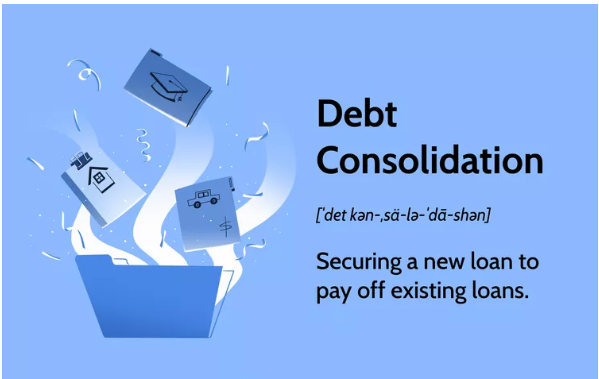Debt Consolidation Loans and Credit: Pros & Cons
If juggling multiple credit card balances and loan payments feels overwhelming, you’re not alone. Many people turn to debt consolidation loans as a way to simplify repayment and possibly save money on interest.
But while debt consolidation can be a smart strategy, it’s not without drawbacks especially when it comes to your credit. Let’s explore the pros and cons so you can decide if it’s the right move for you.
✅ Pros of Debt Consolidation Loans
1. Simplified Payments
Instead of keeping track of multiple due dates and minimum payments, you’ll have just one monthly payment. This makes managing debt easier and lowers your chances of missing payments.
2. Lower Interest Rates (Potentially)
If you have high-interest credit card debt, a consolidation loan could offer a lower fixed interest rate—saving you money in the long run. This is especially true if your credit score has improved since you first took on debt.
3. Predictable Payoff Timeline
Unlike credit cards, which let balances linger, debt consolidation loans have set repayment terms (like 36 or 60 months). This means you’ll know exactly when you’ll be debt-free if you stick to the plan.
4. Can Improve Your Credit Score (Over Time)
If used wisely, consolidation can help your credit by:
-
Reducing your credit utilization ratio (since credit cards are paid off).
-
Building a positive payment history with on-time loan payments.
❌ Cons of Debt Consolidation Loans
1. May Hurt Your Score Initially
Applying for a new loan requires a hard inquiry, which can cause a small, temporary dip in your credit score.
2. Doesn’t Erase Debt
Consolidation isn’t a magic fix—it just moves your debt to a new loan. If you don’t change spending habits, you could end up back in debt (with the old credit cards plus the new loan).
3. Possible Fees and Costs
Some lenders charge origination fees, prepayment penalties, or other costs. These can eat into the savings you’d otherwise gain from a lower interest rate.
4. Could Extend Repayment Timeline
While smaller monthly payments may feel good, they sometimes come from longer loan terms—meaning you might pay more in interest overall.
How Debt Consolidation Affects Credit
-
Short-term: You may see a dip in your score due to the hard inquiry and new account.
-
Long-term: If you make on-time payments and avoid racking up new debt, consolidation can help improve your credit score.
Is Debt Consolidation Right for You?
It may be a good fit if:
-
You have high-interest debt and qualify for a lower-rate loan.
-
You can commit to not using your credit cards while paying off the loan.
-
You want structured repayment with a clear end date.
It may not be the best choice if:
-
You don’t qualify for a competitive interest rate.
-
You’re likely to accumulate more debt on top of the consolidation loan.
-
The fees outweigh the benefits.
Final Thoughts
Debt consolidation loans can be powerful tools for taking control of your finances—if used responsibly. They can simplify payments, save money on interest, and even boost your credit over time.
But remember: the key is discipline. Without addressing the root causes of debt, consolidation can quickly turn into another financial burden.


